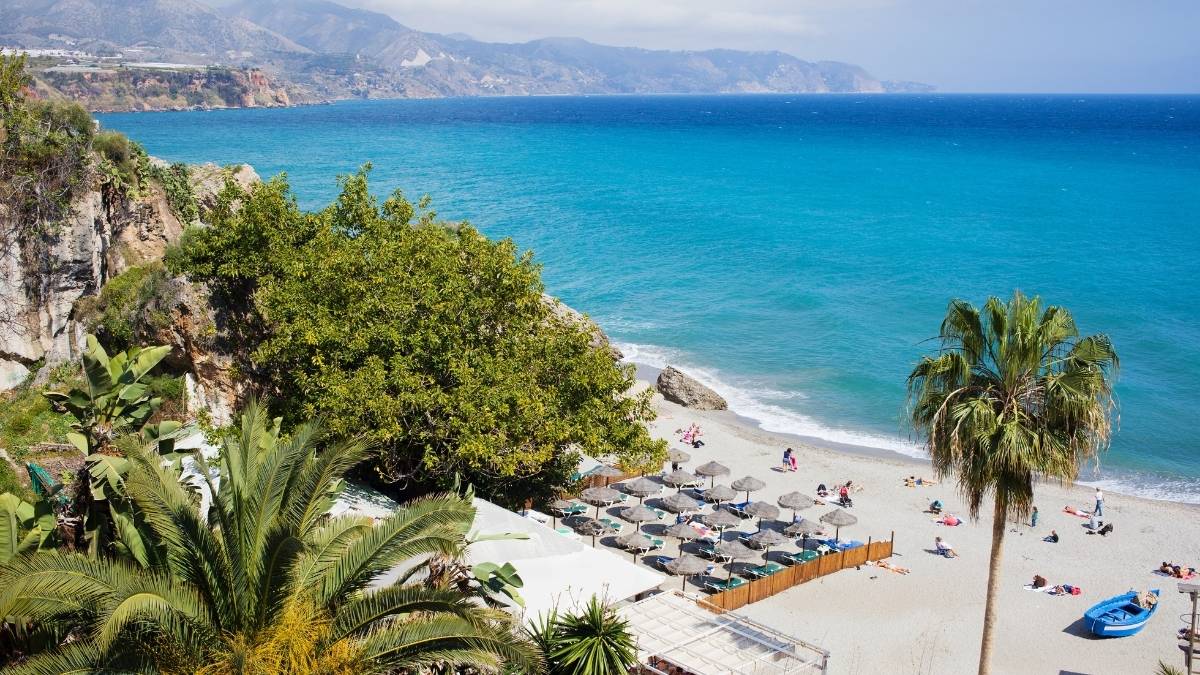Spain is one of our favourite destinations. We love to explore its stunning cities like Barcelona, Seville and Madrid, lap up the sunshine along its golden Costas and have a slice of (sunnier) island life on the Balearic and Canary Islands.
So if you’re dreaming of tapas, sangria and enjoying the sunshine, here’s what you need to know about COVID-19 and restrictions across Spain…
Is it Safe to Travel to Spain?
What are the latest coronavirus restrictions in Spain?
Since the 25th of October, Spain has been in a state of emergency. This brought in a variety of new restrictions that apply everywhere except the Canary Islands.
The new restrictions include a nationwide curfew between 11pm and 6am. This curfew will remain in place for up to six months. There are, of course, exceptions to this such as going to work, caring duties and buying medicine or food. Gatherings between households, in both public and private settings, is now limited to just six people.
Across Spain and its islands, you are still advised to adhere to public health guidelines including:
- Everyone over the age of 6 must wear a face mask in all public spaces and on public transport.
- Regularly and thoroughly wash your hands
- Smoking is prohibited in the street or in outdoor areas if a minimum distance of two metres cannot be maintained
- Use card payment where possible instead of cash
As in Ireland, there is a limited capacity in restaurants, bars and cafes with the utmost health and safety measures in place. This is also true for museums, galleries and tourist attractions. It’s advised, where possible, to book in advance.
What are the latest coronavirus restrictions in the Canary Islands?
There are no restrictions in place in the Canary Islands, but public health guidelines should still be followed. Since March, there have been less than 18,000 cases of COVID-19 reported across the eight islands.
From the 14th of November, everyone travelling to and staying in tourist accommodation on the Canary Islands must present a negative COVID-19 test result. This test should be completed no more than 72 hours before you travel.
The Canary Islands are also offering their own COVID-19 Travel Assurance Cover, which you can read about here.
Can I travel to Spain? What are the entry requirements?
Yes, people travelling from Ireland are welcome in Spain and will not need to self-isolate. You will have to fill out a health control form and sign it electronically before you arrive in Spain. After submitting it, you’ll receive a QR code which you must present upon arrival, presumably at passport control. You may also be required to take a temperature check.
Can I fly to Spain?
Yes, although at a reduced capacity, both Ryanair and Aer Lingus are still flying to Spain on a daily basis. They are flying to the major cities like Barcelona, Seville and Madrid, Malaga for the Costa del Sol and, of course, the Canary Islands.
Do I need to self-isolate when I return home?
Currently, yes. As per the EU-wide traffic light system, mainland Spain, the Balearic Islands and the Canary Islands are currently red. This means you would have to restrict your movements for 14-days upon arrival home.
The status (red, orange, green, grey) can change each week, with an updated map of Europe released every Thursday by the ECDC. You can check the latest status for Spain here.
Get some inspiration for your future holidays to Spain here.




Good info